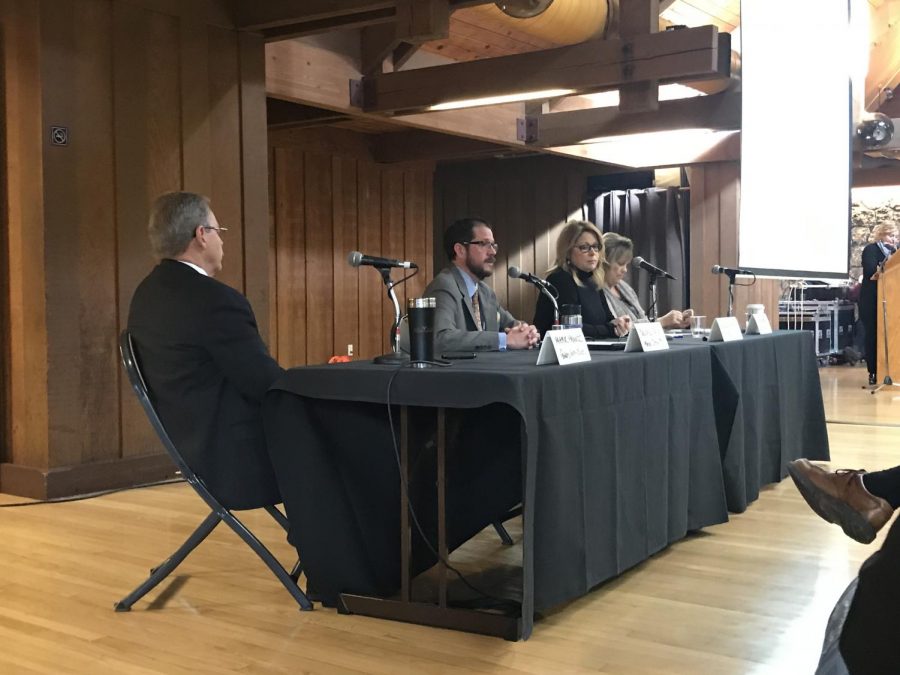Prominent figures of Chico came together Friday in an attempt to solve some of the city’s issues, including the looming housing-crisis.
Around 100 people gathered at the Chico Area Recreation and Park District center to listen to local leaders present data and solutions they had gathered. The meeting held more weight than usual as concerned citizens looked for answers to questions arising from the sudden population increase due to the Camp Fire. This population increase has brought many new issues such as increased traffic, shifts in local economy, law enforcement use and housing.
The first speaker was Michelle Niven, Chair for the Chico Chamber of Commerce Board of Directors. Her report detailed the housing climate and said that the housing situation puts our economy at risk.
In the Chamber’s report, a survey was taken from 76 businesses in mid-December to gauge how many employees were affected by the fire. The result showed that 1,399 employees were impacted and 232 did not have secure housing.
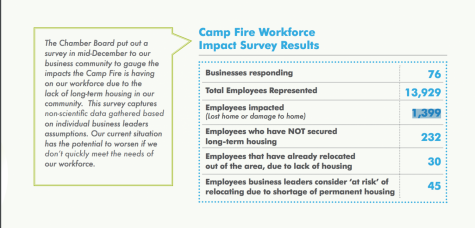
Mayor Randall Stone spoke on building plans and the introduction of inclusionary zoning.
“After decades of experience, it is clear that mandate (of high prices for homes) has failed to produce workforce housing,” Stone said. “And if we don’t house those (low) income residents, then their employers will leave and we will have exasperated their income challenges.”
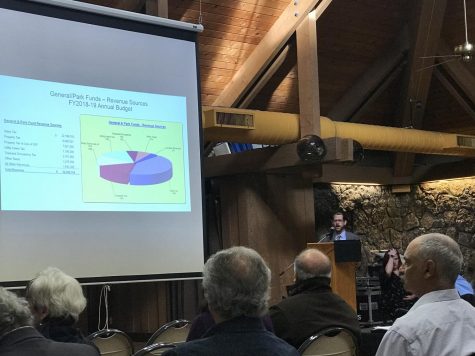
He then proposed that the city council pass a minimum inclusionary zoning limit which would require developers of large family homes to set aside at least 10 percent of the newly-built multi-family homes for low-income employees.
“Simply put, this is taking responsibility for Chico’s future,” Stone said.
Stone gave little indication of a solid plan when questioned on what was being done for college students in regard to off-campus housing. He said the question was more suited for the university, but assured the audience that the city and university were working closely together to solve the issue.
The President and CEO of Golden Valley Bank, Mark Francis, spoke in regards to displaced Paradise residents who currently reside in temporary lodging around Chico.
Hotels and other temporary lodgings in Chico did see an increase in transient occupancy tax (up 23.8 percent) but it is suspected to decrease dramatically if new housing doesn’t becomes available for these residents.
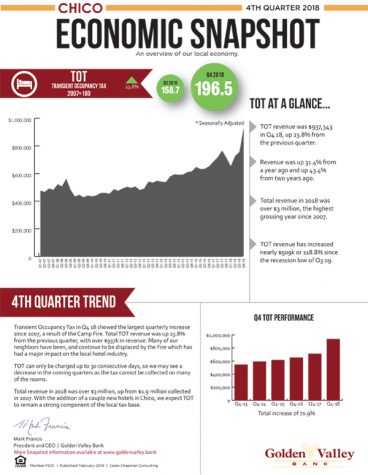
Francis stressed the importance of housing previous Paradise residents and creating new living spaces.
“It’s all about housing thousands (of workers),” Francis said. “We need to have a completely different mindset.”
Law enforcement was also a concern. Because of the drastic increase in population, the Chico Police Department is currently understaffed and in need of more officers. The Chamber estimated that in order to reduce crime, the police force would need to be expanded by 10-20 more officers and staff members. This plan would cost approximately $3 million to $5 million annually.
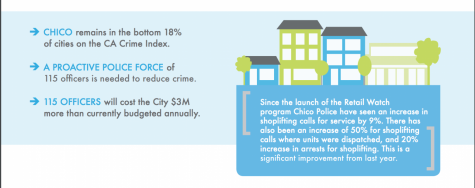
The topic of roads was also touched on by Niven, who reported a 50 percent increase in traffic collisions since the Camp Fire. She said they planned on funding traffic and road related projects from the gas tax revenue, Senate Bill 1 and funds available from the Waste Franchise Agreement.
Stone finished his State of the City speech by emphasizing that these issues weren’t going to be fixed soon but showed optimism for the future.
“The bottom line is we have some very scary things ahead of us,” Stone said. “We’re going to need community resilience.”
Nate Rettinger can be reached at newseditor@theorion.com or @nrettinger19 on Twitter.






